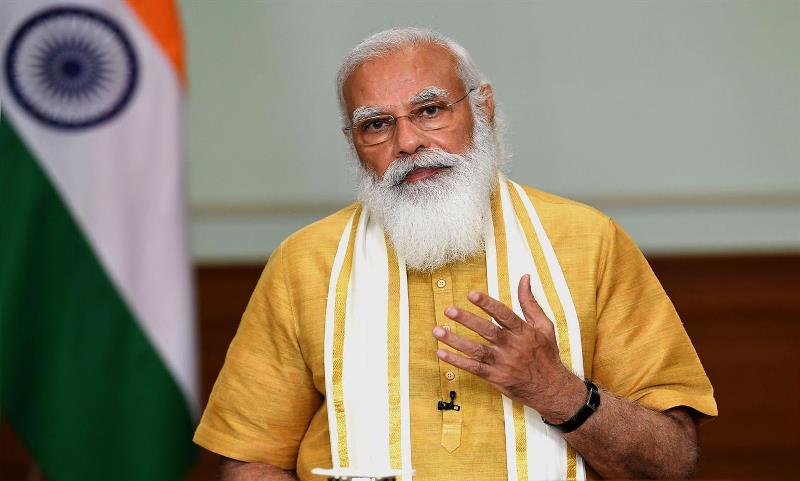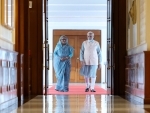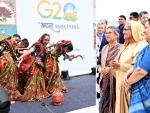Bangladesh
 Anti-Modi Protests
Anti-Modi Protests Who gained from anti-Modi activities in Bangladesh?
Dhaka, May 1: The recent visit of Indian Prime Minister Narendra Modi to Bangladesh has further enriched the growing ties between the two countries, giving them more momentum to walk together. But unfortunately, some untoward incidents also took place during Modi's visit, which is a coincidence and the opposite of the friendly relations between the two neighboring countries. Now it is necessary to be vigilant by identifying the evil forces behind this incident.
When Narendra Modi visited Dhaka, a number of radical organizations called him the father of communalism and raised the slogan 'Go back Modi'. They allege that the Muslims of India are 'suffering from insecurity' during the Narendra Modi government, why the Bangladesh government is giving him the status of a guest.
These organizations organized similar demonstrations in Dhaka, Chittagong and other places.
Several radical groups have similarly opposed Modi in different parts of Bangladesh. But in no way are they representative of the majority of the people of Bangladesh.
Where the Prime Minister of the country wants to speed up the relations between Bangladesh and India in financial and other matters, when Bangladesh is on the path of secularism and when the relations between the two neighboring countries have reached a new height and people are on the path of mutual prosperity, why this opposition? Who is behind it and what is their purpose?
According to media reports, Indian Foreign Ministry sources said that Pakistan has provided assistance in this activity. At the moment, Pakistan's Prime Minister Imran Khan is calling for dialogue with India. Pakistan is even showing a softer attitude towards Kashmir. But along with this peace process, Pakistan is probably looking to pursue a two-pronged strategy.
That is, by increasing anti-India activities in Bangladesh, creating unrest and instability in India and causing headaches to the Prime Minister of that country, Narendra Modi.
Pakistan probably thought that some pressure could be reaped during bilateral talks if pressure was exerted in this way. But there is a head behind Pakistan's strategy, and that is China.
Just as China has exerted its influence in Myanmar, so has Sri Lanka been trapped in a debt trap. Again, with his help, there has been a great deal of unrest in Nepal's internal politics. It is undoubtedly uncomfortable for India to create unrest in India's neighboring countries in this way. The rest was Bangladesh, one of India's absolute allies. If anti-India riots erupt there, it is only natural that India would react, and then the Pakistan-China Axis Powers would benefit diplomatically from the opportunity of that unrest.
Narendra Modi is blaming the China-Pakistan axis for not making this profit for them. Earlier, when the late President, a friend of Bangladesh like Pranab Mukherjee, left, these communal groups opposed him. They have shown such a symbolic black flag when Prime Minister Manmohan Singh has gone.
However, these communal forces have received help during Khaleda Zia's government. Because Jamaat was a part of Khaleda government. But Sheikh Hasina has been dealing with these communal groups in various ways and has never endangered India's relations with Bangladesh.
As a result of his foresight, a bridge was built jointly between the first two neighboring states. Railway communication is being made jointly. The land boundary agreement has been reached. Even Prime Minister Narendra Modi is determined to make the Teesta Accord a reality. In this complex situation, the responsibility of improving the relations between Bangladesh and India more consciously lies with the governments of the two countries as well as the common man.



